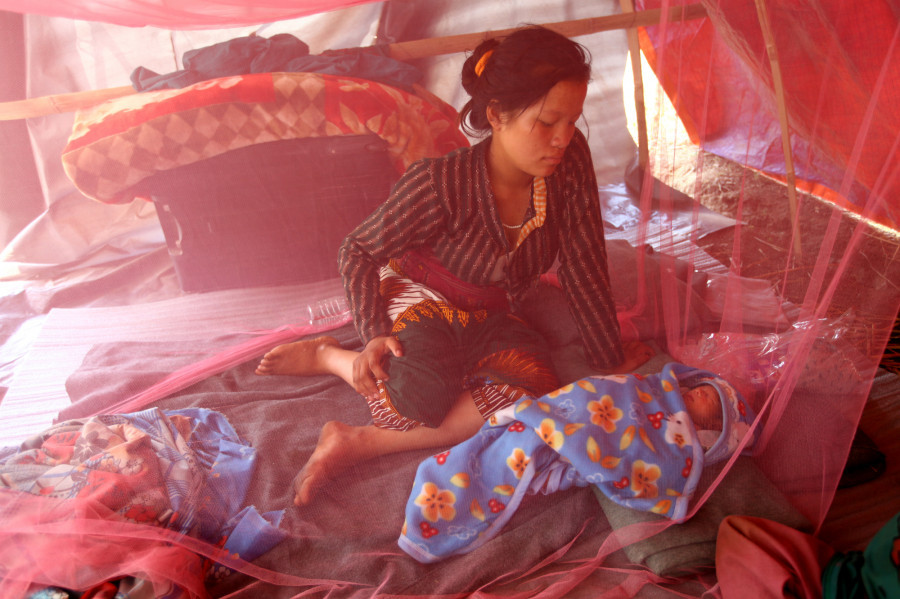Health
Covid-19 taking away Nepal’s achievement in maternal health
Report says 13,189 women delivered babies at hospital prior to the lockdown while the number decreased to 7,165 after the outbreak.
Post Report
Covid-19 is taking away the achievements Nepal made in maternal health in the last two decades, with a significant reduction in births at health facilities and an increase in neonatal deaths and stillbirths during the lockdown, a research has shown.
A new study in the Lancet Global Health, a peer reviewed medical journal, published on Tuesday said the number of births in health institutions decreased by around a half during the lockdown compared to the period before the restrictions were enforced in response to the detection of Covid-19 cases in the country.
Stillbirth, the birth of an infant that died in the womb, per 1,000 births jumped to 21 (a 50 percent increase) from 14 earlier. Institutional neonatal mortality increased threefold from 13 per 1,000 live births prior to the lockdown to 40 during the lockdown.
The research conducted for a period of five months was led by Dr Ashish KC and his team together with Uppsala University, Sweden and London School of Hygiene and Tropical Medical, United Kingdom. They studied the cases from nine hospitals of the seven provinces from January 1 to March 20 prior to the lockdown and from March 21 to May 30 during the lockdown.
In its move to contain the coronavirus spread, the government enforced a lockdown starting March 22. The annual number of births in the selected hospitals accounted for over 11 percent of the total births in the country.
The report said 13,189 women delivered babies at hospital prior to the lockdown while the number decreased to 7,165 during the lockdown. There was a significant disparity among the privileged and disadvantaged groups when it comes to accessing the health service, according to the report.
“Nepal is an example of a country that has had substantial gains in maternal and neonatal survival over the past two decades, yet these gains are at risk due to Covid-19,” said the report.
Since 2000, maternal mortality in Nepal has decreased by 76 percent, and stillbirth by 58 percent. The number of institutional births increased four times between 2001 and 2016. The positive outcome was due to social mobilisation and financial incentives, according to the report.
“Our findings indicate the need to continue communication with policy makers and programme coordinators to address such inequalities and coverage gaps so that additional deaths can be averted,” reads the report.
While the number of mothers from the Brahmin and Chhetri (Hill) communities taking the health services increased to 33.9 percent from 30.7 percent during the lockdown, those from the disadvantaged Madhesi groups fell to 17.1 percent compared to the period prior to the lockdown, which was 21.5 percent, according to the report.
The United Nations Children’s Fund (UNICEF) in May had published a similar report, claiming that an additional 670 children could lose their lives every month in Nepal as the Covid-19 pandemic continues to weaken the health system and disrupt routine services. The UN agency had said researchers estimate up to 4,000 children could die in Nepal in the next six months.
“Undoubtedly, countries face very tough choices on how to combat Covid-19. However, our findings raise questions on policies regarding strict lockdowns in low-income and middle-income countries during outbreaks,” Joy Lawn, co-senior author from the London School of Hygiene and Tropical Medicine, was quoted by a newsletter of the school.
“Collateral effects seem to be much more severe than the actual direct effects of SARS-CoV2 infection, especially so for the most vulnerable in our society, pregnant women and babies. More data are needed, but even more importantly, more action now to protect these services.”




 9.66°C Kathmandu
9.66°C Kathmandu














